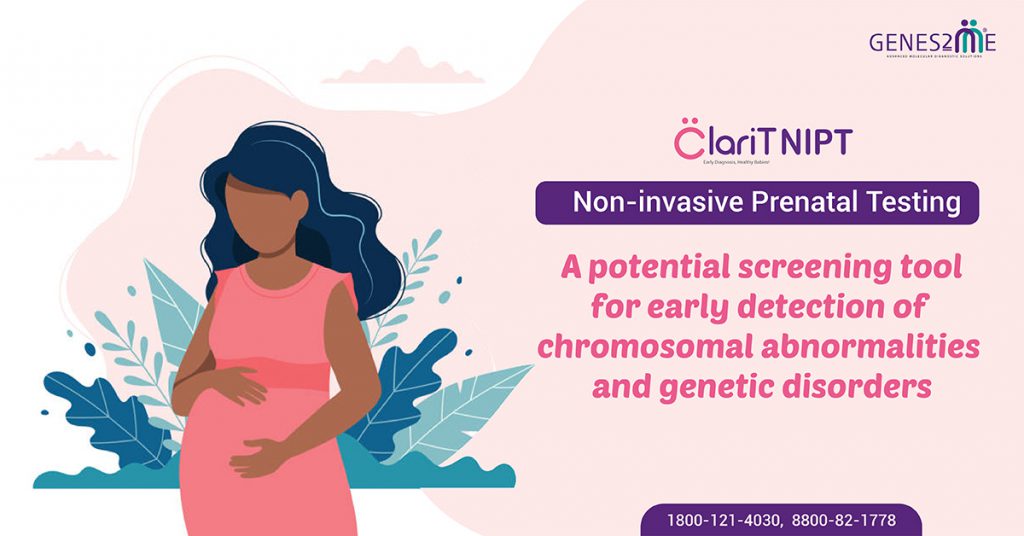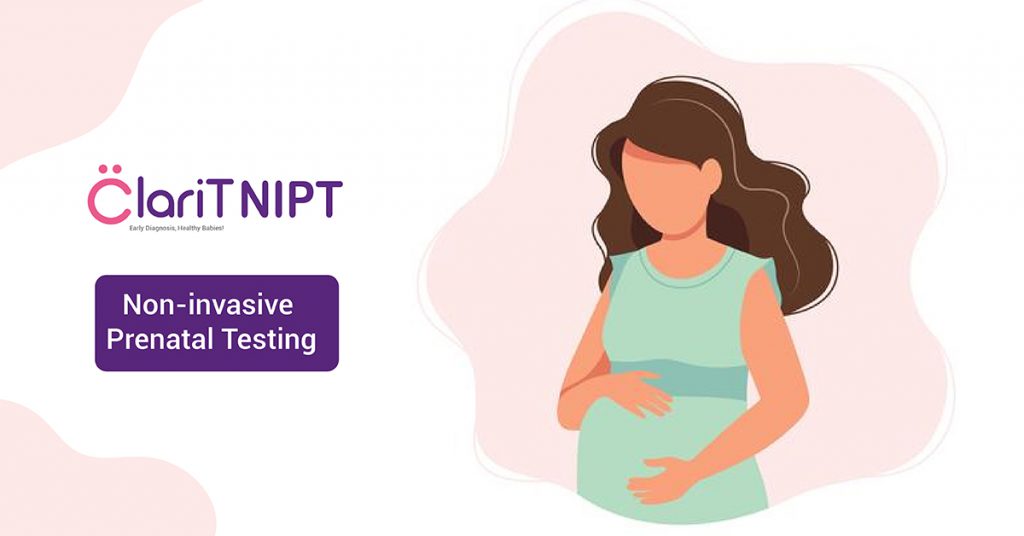Non-Invasive Prenatal Testing – A Potential Screening tool for early Detection of Chromosomal Abnormalities and Genetic Disorders

Prenatal Testing:
The journey of pregnancy is easy, and at the same time, it’s difficult as it requires a lot of patience and strength from the expecting mother. The developing fetus present in the mother’s womb needs to be analyzed regularly to avoid any complications that can result in miscarriage or pregnancy loss. Prenatal testing plays a significant role during pregnancy. Prenatal testing can be invasive or non-invasive in nature. Invasive techniques are commonly used for testing purposes; however, they pose a significant risk to the developing baby and the mother. Non Invasive mode of testing is coming up and is being used as the frontline technique for genetic screening of the developing fetus. This may not be as harmful to the mother and developing baby when compared to the invasive mode of testing.
Non-Invasive Prenatal Testing:
Genetic testing during pregnancy is crucial as it helps in the early detection of chromosomal disorders and genetic abnormalities in the developing fetus. NIPT Test During Pregnancy is used for detecting chromosomal abnormalities at an early stage of pregnancy. This technique can be used as early as the 10th week of pregnancy. This technique uses cell frees DNA (cf-DNA) of the developing baby present in the mother’s serum. This DNA is extracted by taking blood from the expecting mother and screening it for genetic analysis. A simple blood test is not harmful to the mother and reveals the fetus’s problems at an early stage.

NIPT testing involves the latest and advanced Next Generation Sequencing technology for analyzing the cell-free DNA of the developing baby collected from the mother. The use of technology in the testing generates in-depth and detailed results that the doctors can use to assess the condition of the disorder in the developing baby. Early detection also helps the doctor design effective treatment and medication options and helps the couple make informed medical decisions.
NIPS is used for screening three prominent chromosomal trisomy’s; Chromosome 21 (Down’s syndrome), Chromosome 18 (Edward Syndrome), and Chromosome 13 (Patau Syndrome). Some advanced NIPT tests also cover other significant aneuploidies also. Pre and post-test genetic counseling sessions are also provided along with Non Invasive prenatal screening so that the patient can know the benefits of the test formally going for it and understand the reports after the test and generation of results. This option helps the patient clear all the doubts and queries the patient has for the developing fetus.
NIPT Test Cost in India:
The cost of NIPT in India varies across different genetic testing diagnostic companies. Some companies may charge more depending upon the technology and the parameters under consideration for the NIPT. For testing all the common aneuploidies, the charge may be on a higher side. The approximate cost of the test is around ₹15000- ₹22,000. This charge may also vary depending upon the location where NIPT testing being performed. The facility of this specific testing is available across the nation.
Early screening of genetic and chromosomal abnormalities using non-invasive prenatal testing is the key to preventing major genetic disorders in the developing baby.
